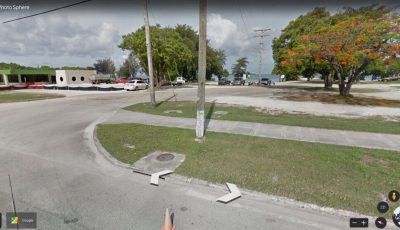Reckless abuse of authority
The violation of the public trust is the most egregious form of corruption anywhere. Defined, it means the “misuse of public power (by elected politicians or appointed civil servants) for private gain.” It involves actions that violate the interest of “we the people.”
Let me hand you issues so you analyze their disposition and draw our own conclusions. We’re not trying to convict anyone but simply get a clear view of actions taken to weigh if there are violations committed against the public interest.
For instance, the Constitution says that the expenditure of all public funds requires legislative appropriation. Remember the $400,000 engineered by Biktot Hokog through legislative resolution? Was its expropriation legal? How come nobody from either side of the hill came forward to retrieve illegally secured taxpayers’ money? I suppose it’s convenient political collusion! Isn’t the NMI a government of laws? Is lawlessness the legacy of this administration?
Moreover, a legislator leased public land then turned around and rented it to another. It’s the infamous Arnold Palacios lease, for which we haven’t heard how much did he make or was the rent money returned to DPL? How much does he owe DPL: $1 million or $195,000? Was the adjustment done because of accounting errors or was it a unilateral decision by DPL without the requisite authority? Could DPL explain this with some sense of transparency?
Moreover, IPI or Best Sunshine was excused from regulatory agency(s) review that includes DEQ, DPW, Fish and Wildlife, etc. Yet other firms must go through the requirements of pertinent laws to secure their license. Isn’t this in violation of a certain federal law that prohibits power peddling for friends? So the politically connected gets off free while the rest must endure mandates of regulatory requirements. It’s a display of policy instability that’s damaging to the local investment atmosphere here.
In grammar lingo, the elected elite is confused over what makes for a simple and complete sentence. They promise to help villagers yet approve their 80-percent salary increase without blinking. Does this in any way help improve the buying power of villagers? What about the 14,000 employees stuck in poverty income level and below?
Reminds one what President Trump said recently about failed leadership: “I have no patience for injustice, no tolerance for government incompetence, no sympathy for leaders who fail their citizens.”
Read: CHC suffers a budgetary shortfall of some $13 million, not to mention some $50 million owed CUC by the local government. Isn’t the unfunded liability of the fund still owed about $789 million? Isn’t the cumulative deficit more than $50 million? It’s clear that these debts and mounting obligations do not leave much room to toy with scarce resources, true?
Corruption is a tough issue to detect on its face. The reason is simple: The elite is usually the boss of the group. Working with their cronies, they are their own experts and go about their work with some semblance of propped-up integrity. The group is cloistered in its powerful organization, witch-filled or evil ways and tends to be much freer from the consequences of their actions.
Those closest to the source of power are obedient servants carrying out orders faithfully. In the process they learn how to cover one another. But there’s always the chance of someone dropping the ball, what with the boss’ ego being loaded with greed, power and servile cronies.
This combination sets the stage for the elected elite to recklessly abuse their authority. It includes padding their wallets as though the rest of us are simpletons or ignoramus. The benefits, federally or locally funded, are usually limited to the “we few” and hardly distributed to the people that really need the help. Active though quiet treading is in order of every key player, daily.
It had to be greed, arrogance and negligence that prompted the elected elite on the hill to increase their salaries by 80 percent. What about cumulative deficits and obligations in the billions of dollars? Shouldn’t we be saving for that rainy day too?
The reckless abuse of authority places essential services at risk. It’s about prudent spending of scarce public funds to ensure there’s money for healthcare, the education of our children and other social programs designed to help those earning poverty income level and below at this juncture. Anybody home?



























